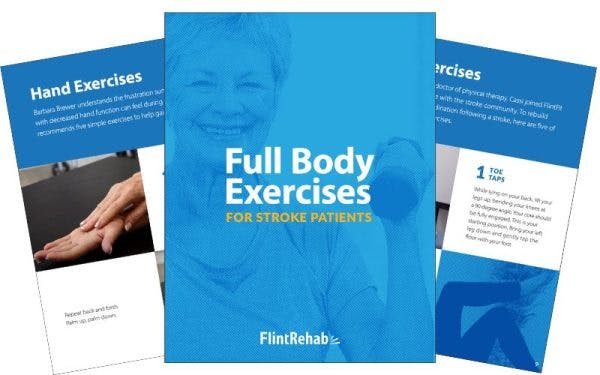Can stress cause a stroke? While it may not always be the direct cause of stroke, stress can be a significant contributing factor. Science has demonstrated that long-term stress can have many detrimental effects on both the body and mind.
Chronic stress can trigger or exacerbate conditions involving the cardiovascular system, cognitive functions, gastrointestinal system and the immune response. But how can stress cause a stroke? Research demonstrates that stress can cause increased blood pressure, high blood sugar, and changes to the blood vessels, making it a major risk factor for stroke.
This article will explore the many effects of stress on the body, focusing specifically on its effects to the cardiovascular system. We’ll also cover signs of chronic stress and management techniques to help individuals minimize its effects and improve their overall health.
Please use the links below to jump directly to any section of this article.
- Effects of Chronic Stress
- How Can Stress Cause a Stroke?
- Stress and Stroke Risk Statistics
- Ways to Help Manage Chronic Stress
What Are the Effects of Chronic Stress?
Learning to identify the effects of chronic stress can boost awareness and encourage individuals to pursue healthy management techniques. Experiencing stress is a normal part of life, and can even be psychologically beneficial. However, when stress becomes prolonged, lasting for days or more and lingering even after the stressful event has past, it becomes chronic, and can cause significant physical and psychological symptoms.
Some well-studied effects of chronic stress include:
- Cognitive changes. Chronic stress may cause structural changes in the brain, and can potentially lead to changes in memory, learning, and judgment.
- Low immune response. Stress can suppress the immune system, causing individuals with chronic stress to become sick more frequently.
- Cardiovascular changes. Stress may cause an increased heart rate and blood pressure, as well as changes in blood vessel size.
- Gastrointestinal and digestive issues. Stress has been linked to appetite changes, and may cause or exacerbate digestive problems such as irritable bowel syndrome.
- Insomnia. Stress has been shown to increase the risk of insomnia, which can contribute to even more stress and worsening insomnia in a vicious downward cycle.
- Changes in libido. Many studies have linked high stress levels with lowered sex drive and dissatisfaction in relationships.
- Headaches. A study with over 5,000 participants found that individuals who were stressed were more likely to experience headaches, and that increasing stress resulted in an increased frequency of headaches.
The most common sources of chronic stress include challenging relationships, financial difficulties, and high-pressure jobs. Of these sources, work-related stress has the most evidence directly linking it to an increased risk of stroke. Looking further into the cardiovascular effects of stroke can help individuals further understand how stress can cause a stroke.
How Can Stress Cause a Stroke?
When a stroke occurs, the supply of blood in the brain is compromised by either a clogged or burst artery. This life-threatening event requires swift treatment to restore blood flow in the brain, minimize brain damage, and save the person’s life.
Before a stroke occurs, there is often preexisting damage to the cardiovascular system, such as weakened or narrowed arteries. This is where the link between stroke and stress occurs: chronic stress can contribute to arterial damage and increase the risk of stroke. But exactly how does that happen?
When the body is under stress, it releases stress hormones like cortisol. These hormones help the body retain water, sodium, and sugar which help keep blood pressure up and ensure the body has enough fuel to function.
While this is helpful for functioning in stressful situations, it can cause negative health effects when the body remains in this state for prolonged periods of time.
Long-term elevated blood pressure and blood sugar can eventually cause hypertension and diabetes, respectively, which are two leading causes of stroke.
Furthermore, chronic stress can cause unhealthy coping behaviors such as smoking, which is another leading cause of stroke. Therefore, chronic stress may not only damage arteries but also contribute to many of the leading causes of stroke.
Stress and Stroke Risk Statistics
Based on all of the unhealthy effects of stress on the cardiovascular system, it is easy to see how long-term stress may result in a stroke. Here are a few statistics that demonstrate how chronic stress can eventually lead to a stroke if left unmanaged:
- High blood pressure. When chronic stress leads to high blood pressure, it can weaken the arteries. Research has demonstrated that individuals with untreated high blood pressure are seven times more likely to have a stroke than the average individual. Additionally, lowering blood pressure by as little as 4–10 mmHg can dramatically reduce the risk of stroke.
- Blood pressure reactivity. When blood pressure increases in reaction to stress, it’s called blood pressure reactivity. One study found that men with exaggerated blood pressure reactivity had 72% greater risk of stroke. Exaggerated blood pressure reactivity is also linked to atherosclerosis and hypertension, which are two stroke risk factors.
- Stressful habits. Research has demonstrated that people with stressful habits such as “type A personality behaviors” and “high consumption of energy-providing drinks” are at an increased risk of stroke.
- Work-related stress. A long-term study of over 5,000 individuals found that people with high stress intensity almost doubled their risk of a fatal stroke compared to non-stressed individuals. Other studies have reported that working long hours and job-related stress can also increase stroke risk.
- Diabetes. When blood sugar remains elevated in response to chronic stress, it can contribute to diabetes, which is another leading cause of stroke. Individuals with diabetes are twice as likely to have a stroke compared to individuals without diabetes.
The top 5 leading causes of stroke in America include hypertension, high cholesterol, smoking, obesity, and diabetes. While studies have directly linked chronic stress to two of these factors—hypertension and diabetes—it may also contribute to the other leading causes of stroke. For example, chronic stress can cause an individual to make poor dietary choices, which can contribute to high cholesterol and obesity.
Ways to Help Manage Chronic Stress
Since there is a strong correlation between stress and stroke, it is essential to find healthy stress-management techniques. Research highlights several effective techniques for managing stress, outlined below:
1. Exercise several times per week
Exercise is an excellent coping mechanism for stress because its benefits are twofold. First, exercise helps boost endorphins (the brain’s “feel good” chemicals) and combat the emotional effects of stress. Secondly, exercise improves cardiovascular health, thus helping to protect the body from the harmful effects of stress, such as high blood pressure.
Exercise recommendations from the American Heart Association recommends at least 150 minutes of moderate physical activity or 75 minutes of vigorous exercise, optimally spread throughout the week. Exercising outdoors can also add to the benefits of physical activity, as spending time in green spaces has also been linked to reduced stress levels.
2. Mindfulness and deep breathing techniques
Mindfulness and deep breathing techniques can help lower blood pressure and improve the body’s stress response. Even taking just 6 deep breaths over 30 seconds has been shown to reduce blood pressure. Therefore, it can be very beneficial to take a few moments to practice deep breathing throughout the day, especially when faced with stressful circumstances.
Focusing on being present in the moment by practicing mindfulness can also reduce stress and improve blood pressure. Examples of mindfulness-based stress reduction interventions include body awareness exercises, meditation, and gentle yoga. Smart watches and phone apps can also be used to assist with mindfulness and deep breathing by providing daily reminders to practice, using visuals, and giving real-time feedback.
3. Keep an eye on caffeine intake
While caffeine does offer some benefits, such as improving focus and alertness, consuming too much caffeine can have negative effects. Overconsumption of caffeine, whether from coffee, energy drinks, or something else, can cause jittery and anxious feelings that may contribute to stress or even result in panic attack.
Furthermore, drinking caffeine too late in the day can contribute to insomnia, a condition that stress may already worsen. Therefore, for those choosing to consume caffeine, try to stick with a relatively low dosage, consumed well before bedtime.
4. Focus on factors within one’s control
Feeling a lack of control over one’s work can significantly contribute to the stress-related risk of stroke. A large study found that jobs with high demand and low control, such as a restaurant server, were associated with a 22% increased risk of stroke compared with low demand and high control jobs.
While it is not always possible to change jobs or move into a low demand career, individuals can control how they think and respond in these situations. By focusing on the factors within one’s control and not worrying about things outside of their power, individuals can limit the harmful effects of work-related stress.
5. Develop healthy self-care habits
Taking the time to practice self-care can also help to reduce stress. A few self-care techniques to try include:
- Make time to participate in enjoyable leisure activities, such as going for a walk through the park, journalling or spending time with friends
- Participate in regular physical activity
- Practice good sleep hygiene
- Eat a healthy, well-balanced diet, rich in foods that help to prevent stroke
- Consider working with a psychologist to learn to identify the triggers of stress, improve thought patterns and discover positive coping skills
While it can be challenging to develop healthy self-care habits, intentionally making time to do so can help individuals reduce stress levels. For more personalized stress management recommendations, consider talking with a doctor or psychologist.
Understanding the Link Between Stress and Stroke
Chronic stress directly impacts the cardiovascular system, which can result in damage to the arteries when left unmanaged. This vascular damage can eventually lead to a stroke.
Chronic stress most commonly is related to work, relationships, or financial struggles. While these situations are not always within one’s control, individuals can control how they respond. Choosing activities like practicing exercise, mindfulness, and self-care can help reduce stress levels and, as a result, reduce one’s risk of stroke.










